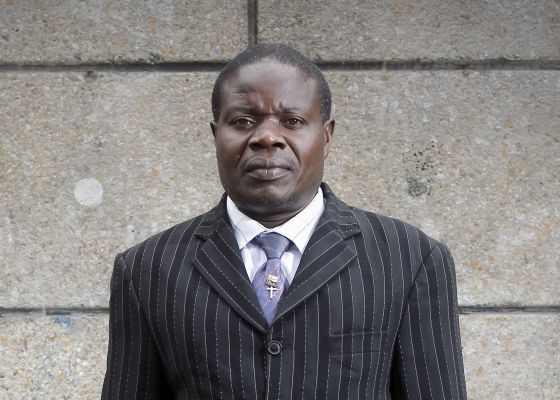Uganda owes a multinational company to return its lands to 2,000 farmers | Society

After 10 long years of fighting, a Ugandan judge finally ruled in favor of 400 peasant families who were evicted, beaten, and taken from their lands to cede them to a German multinational coffee, the Newman Café Group. The company must return the land (2,500 hectares) and compensate them with 12 million euros. “We are very happy, although they can still appeal,” says Peter Balik Kaira, a teacher in the area and one of the complainants, on the phone, says Bakel, who traveled to Europe at the invitation of Veterinarians Without Borders To report and present the case. They have a month, until the end of April, to deposit the money in court. Despite it being repeated, we are now pretty sure we will win. “
The army intervened, burning homes and crops, and beating neighbors
The case dates back to the summer of 2001. On June 18 of that year, a representative of the Ugandan government reunited the families (about 2,000 people from three villages) who were residing in In the Madudu region (in Mubendi, central Uganda) To announce that the government has ceded their lands to a multinational company and they must give it up. No financial compensation or an alternate place to go. The families resisted, and on August 18 the army intervened, burning homes and crops, and beating neighbors. Families fled to the woods, where many children and the elderly died due to the living conditions in which they were forced to live. Days after the attack, the multinational company settled in the area and started growing coffee. A year later, the peasants denounced the case.
Two decades later, the cause seemed deserted. Up to seven judges took the case without dictating justice. Until finally, two weeks ago, the last judge said the multinational company was guilty. The judge himself, in his ruling, speaks of the delay: “It was a cause for celebration that the trial ended in 10 years, a record that should have gone into Guinness,” he wrote sarcastically. “Delaying justice means depriving it, and if the courts find to reduce the backlog, they must prepare to solve it in a short time. This issue deserves good thinking.”
Carry up to seven judges
Case without judgment
With regard to the Ugandan government, the judge concluded that there was no evidence that it had sent the army to beat and expel the peasants and concluded that they went alone. It condemns the government officials who managed the case, as they had to pay for alternative land and give it to the peasants. “I completely agree with the judge on this,” says Bakel.
The multinational company, which also sells coffee through fair trade networks, was alarmed by Bakele and VSF Justicia Alimentaria Global, who relocated Uganda to Spain last May, when they launched the Stop, People Live Here campaign, denouncing the plunder of food sovereignty in South Africa. The Sahara Desert. They noted that in less than a year, various investors have acquired 42 million hectares of fertile land in the world, 75% in this part of the continent, and have robbed them of the natural resources from which they get their food.
The Uganda case is a good example of the problem they condemn. As Buckle says: “In my country, if you don’t produce your own food, you have nothing to eat. 80% subsistence farming. Who benefits if multinationals come to produce food at prices we can’t afford? Absolutely not us. They are stealing our food,” he was furious. During an interview with EL PAÍS. Buckle is proud to encourage his neighbors to report. “I am not the most enlightened, but I am the most daring and I know the laws,” he said in the interview.

“Coffee fanatic. Gamer. Award-winning zombie lover. Student. Hardcore internet advocate. Twitter guru. Subtly charming bacon nerd. Thinker.”











